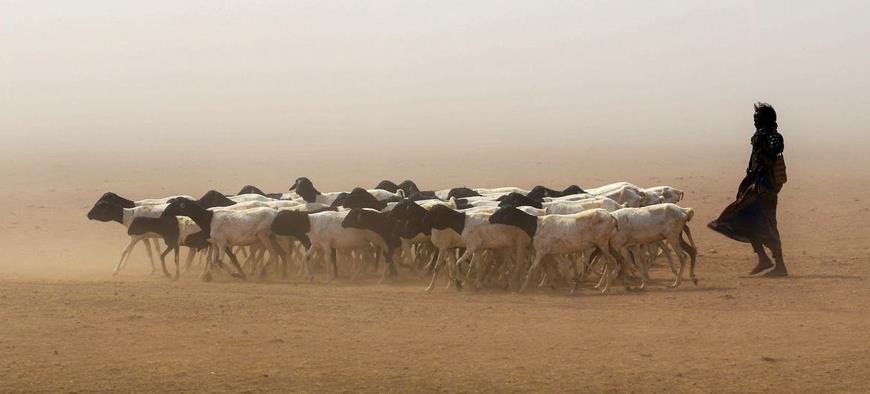
Horn Of Africa Drought To Worsen With Fifth Failed Rains — UN
GENEVA — The devastating Horn of Africa drought is set to get even worse with a fifth consecutive failed rainy season, the UN's weather agency forecasted on Friday, fearing an unprecedented humanitarian catastrophe.
Ethiopia, Kenya and Somalia are already going through their worst drought for 40 years and another poor rainy season is now highly likely, the World Meteorological Organisation (WMO) warned.
'The drought is set to continue,' WMO spokeswoman Clare Nullis told reporters in Geneva.
She said the Greater Horn of Africa Seasonal Climate Outlook Forum had issued its predictions for the October to December rainy season.
'Unfortunately, the predictions show high chances of drier-than-average conditions across most parts of the region,' Nullis said.
'The drought-affected areas of Ethiopia, Kenya and Somalia are expected to receive significantly below normal rainfall until the end of the year.'
The four straight failed rainy seasons so far have killed millions of livestock, destroyed crops, and forced 1.1 million people from their homes in search of food and water.
The number of people at risk of starvation in the drought-ravaged region has increased to 22 million, the UN's World Food Programme said last week.
The crucial October to December season typically contributes up to 70 per cent of the annual total rainfall in the equatorial parts of the Greater Horn of Africa, particularly in eastern Kenya.
Nullis warned the deficit is 'really going to hit hard' and the seasonal rainfall 'will not be sufficient to alleviate the crisis now'.
'We are witnessing an unfolding tragedy.'
Guleid Artan, the director of the WMO's regional climate centre for East Africa, said the outlook showed a 'high degree of confidence' that there would be a fifth consecutive failed rainy season in the Horn of Africa.
'In Ethiopia, Kenya, and Somalia, we are on the brink of an unprecedented humanitarian catastrophe,' he said.
The World Health Organisation said it was focusing on the resulting health crisis, with disease being fuelled by malnutrition.
The UN health agency is trying to ensure access to basic health services, treatment for severe malnutrition and being on alert for disease outbreaks.
'Acting now means we can save millions of lives' in Djibouti, Ethiopia, Kenya, Somalia, South Sudan, Sudan and Uganda, the WHO said.
More than 7.3 million are in an 'emergency state' facing extreme food shortages — 'and the risk of hunger-related death is rapidly increasing'.
Jens Laerke, spokesman for the UN's humanitarian agency, said they would be asking 'everybody who has anything and everything available' to help alleviate the crisis.
'There are a lot of other countries that could step up,' he said.

Legal Disclaimer:
MENAFN provides the
information “as is” without warranty of any kind. We do not accept
any responsibility or liability for the accuracy, content, images,
videos, licenses, completeness, legality, or reliability of the information
contained in this article. If you have any complaints or copyright
issues related to this article, kindly contact the provider above.


















Comments
No comment